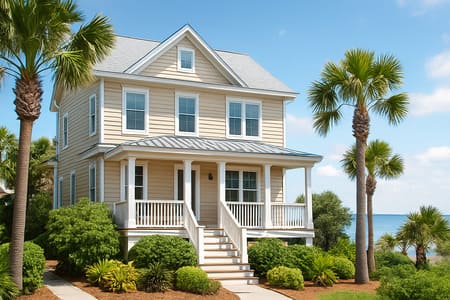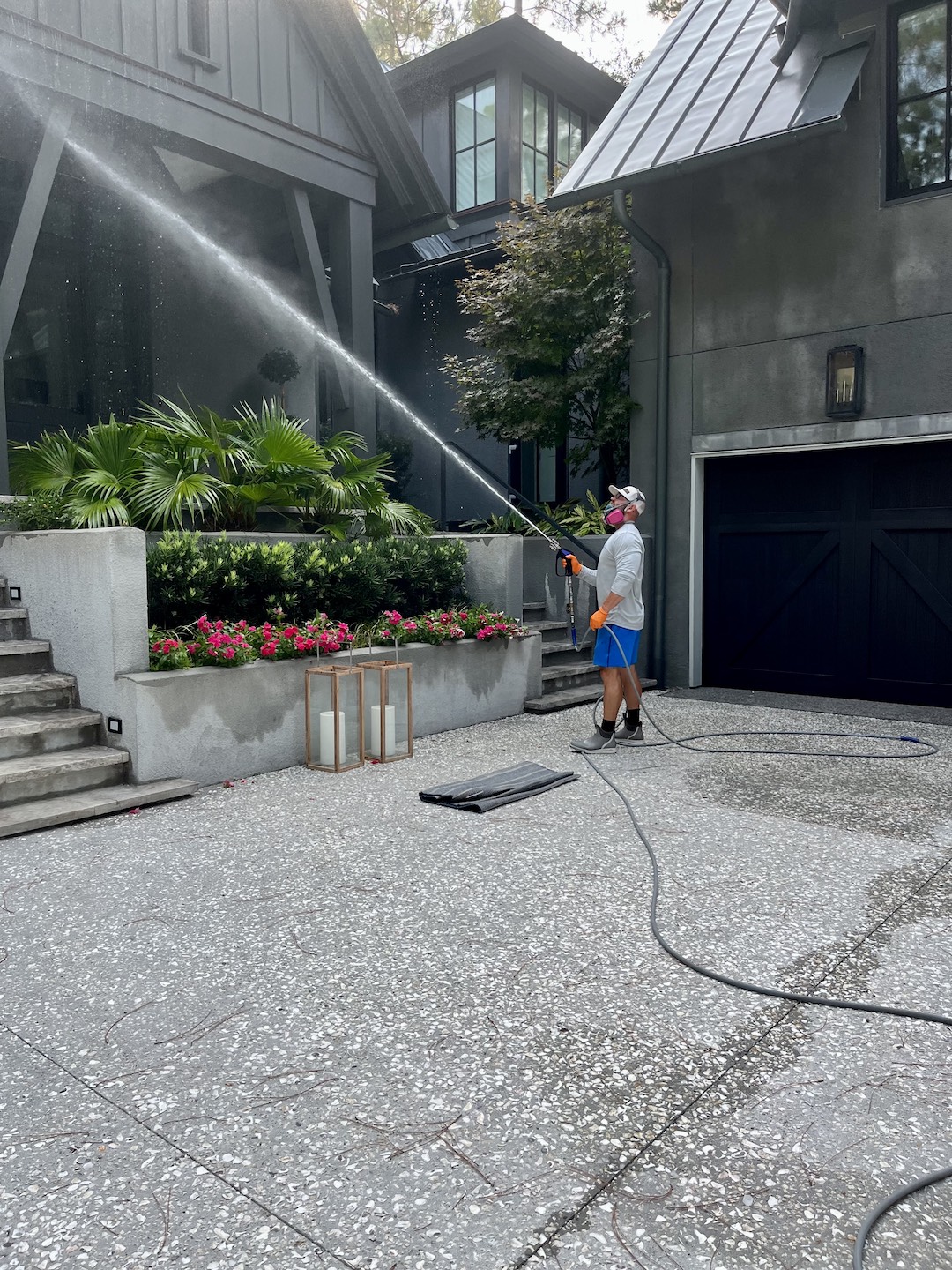Soft Wash vs. Pressure Wash: Which Is Better for Coastal Homes?

Coastal homes, like those in Johns Island, face unique challenges when it comes to exterior cleaning. Salt air, humidity, and constant sun exposure create an ideal environment for algae, mold, and mildew to thrive. Homeowners often wonder: Should I choose soft washing or pressure washing to maintain my home's exterior?
Understanding the Difference
Pressure washing uses high-powered water streams to blast dirt and grime off surfaces. While effective on durable materials like concrete or brick, it can be too harsh for delicate surfaces such as stucco, vinyl siding, or painted wood. High-pressure water can cause chips, cracks, or even force water behind siding, leading to long-term damage.
Soft washing, on the other hand, combines low-pressure water with eco-friendly cleaning solutions designed to break down algae, mold, and mildew. This method not only cleans but also kills the organisms at their roots, helping prevent regrowth for months.
Is Soft Wash Safe for Stucco and Vinyl?
Yes! One of the biggest concerns for homeowners is whether soft washing will harm stucco or vinyl siding. The low-pressure approach is gentle enough to avoid damage, while the cleaning solutions penetrate the surface to remove stains and prevent future growth. This makes it ideal for coastal homes, where moisture and algae are constant threats.
Coastal Algae Control
Johns Island and the surrounding Lowcountry are especially prone to coastal algae due to the humid, salty environment. Traditional pressure washing may temporarily remove surface algae, but without killing the spores, regrowth can occur within weeks. Soft washing offers a longer-lasting solution by addressing the issue at a cellular level. Local data shows that properly applied soft wash treatments can reduce algae regrowth by up to 70% compared to pressure washing alone.
For homes near the water, controlling algae is not just about aesthetics-it's also about protecting your investment. Algae can trap moisture against your siding, which may accelerate wood rot or degrade paint over time. Using a professional, high-quality Johns Island pressure washing crew ensures the correct solution strength and application, maximizing both effectiveness and safety.
Choosing the Right Method
While both methods have their place, the choice often depends on the surface and long-term goals. Pressure washing is great for hardscapes like driveways, patios, and seawalls. For siding, stucco, roofs, and delicate architectural details, soft washing is the preferred option for lasting cleanliness and protection. Coastal homeowners often combine the two: soft washing for the home exterior and pressure washing for patios, decks, and sidewalks.
Conclusion
For Johns Island homeowners facing the challenges of coastal algae, mold, and mildew, soft washing is the safer, more effective method for protecting your property. It preserves delicate materials, provides long-term algae control, and keeps your home looking its best year-round.
Ready to restore and protect your coastal home? Contact our Johns Island team for professional, long-lasting soft washing with Palmetto HydroWash LLC.
Articles & Tips
-
Gutter Cleaning vs. Gutter Guards: What’s Worth It Near the Coast?
Living on Johns Island means salt air, sudden downpours, and tree debris that never seems to quit. If you’re weighing gutter cleaning against gutter guards, the right choice depends on how Lowcountry weather hits your roofline. This guide breaks it down for coastal homes and explains […]
-
Soft Wash vs. Pressure Wash: Which Is Better for Coastal Homes?
Coastal homes, like those in Johns Island, face unique challenges when it comes to exterior cleaning. Salt air, humidity, and constant sun exposure create an ideal environment for algae, mold, and mildew to thrive. Homeowners often wonder: Should I choose soft washing or pressure washing to […]
